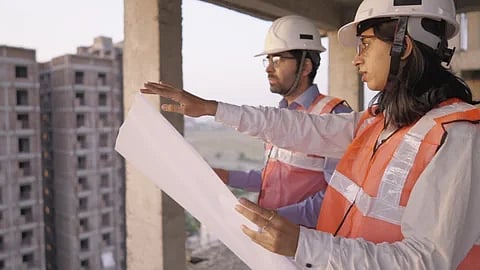

Every year on September 15, India celebrates Engineers’ Day to honour Sir M Visvesvaraya, a pioneer who shaped the nation’s infrastructure and vision for modern development.
He is known as the ‘first engineer of India’ and the ‘father of Indian engineering’, but with time, his legacy has grown manifold.
Today, engineering is more than just a profession, or a route to secure jobs. It is one of the fastest-evolving and most impactful fields.
From artificial intelligence (AI) to green energy, engineers today are at the heart of solving some of humanity’s biggest challenges.
More than a degree
“Engineering is definitely not just another degree. It carries a much deeper value, even today,” says Dr Balaji PS, Assistant Professor of Mechanical Engineering at the National Institute of Technology (NIT) Rourkela.
“An engineering degree is not only a certificate; it’s a professional qualification that actually shapes how students think and work,” he adds.
The former Vice-Chancellor of Visvesvaraya Technological University (VTU), Dr K Balaveera Reddy, explains how engineering disciplines are changing, with greater emphasis on interdisciplinary skills and education.
“To build an automobile, you need not just mechanical engineering but also electrical, electronics, computers, and even artificial intelligence for designing the shape and components. The core branches are still very much required; programming alone will not suffice,” he stressed.
Looking ahead, Dr Balaji believes engineering will only become more central to solving society’s challenges.
But is engineering a waning profession in the job market? To this, Dr Balaji states, “There’s no such thing as ‘saturation’ when it comes to innovation. As long as there are problems to solve, there will always be a need for engineers."
Moreover, the experts unanimously agree upon the growing malleability of engineering jobs and their growing requirement for different needs with global changes.
“The next decade will see engineers playing a massive role in automation, whether it’s in manufacturing or service industries. But that’s not all. The scope is expanding into sustainability, artificial intelligence, renewable energy, healthcare technologies, and even space exploration,” he further added.
Dr Reddy also echoed this call to look ahead. “Engineering must focus not only on development but on development that is sustainable,” he says.
While there is an AI boom happening, what do experts think about engineers losing their edge over AI?
“With AI, engineers can quickly put together an initial concept and then focus on refining it into something more advanced, efficient, and practical. That means less time spent on repetitive basics and more time for the bigger, more innovative challenges,” says Dr Balaji.
But both experts agree that AI cannot replace human ingenuity.
Dr Balaji warns, “Aspiring engineers should enjoy the positives of AI without becoming so dependent on it that they lose their own edge.”
Teamwork, adaptability, and communication are just as crucial as technical knowledge, says Dr Reddy.
“One person cannot do everything anymore. Just like you cannot lift even a pin with a single finger, teamwork is essential. Team leaders are required,” he adds.
He also points out that the industry demands “21st-century skills”; these are critical thinking, creativity, communication, and collaboration, along with strong fundamentals.
